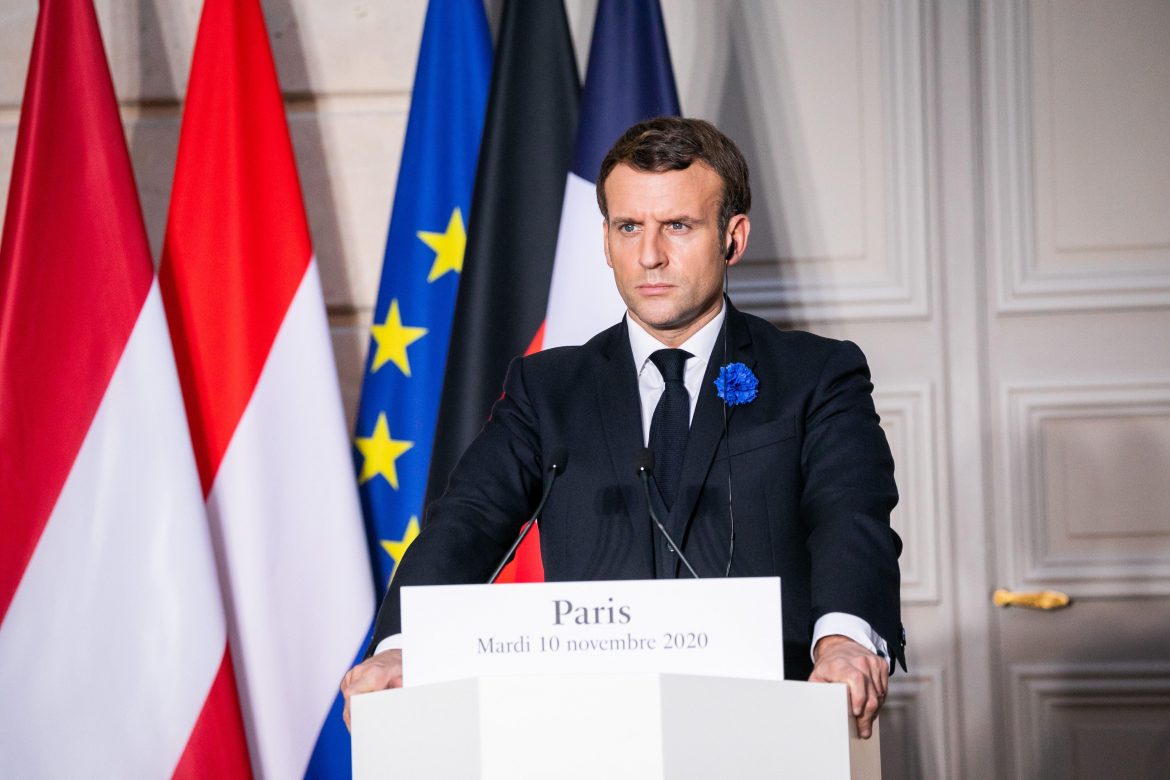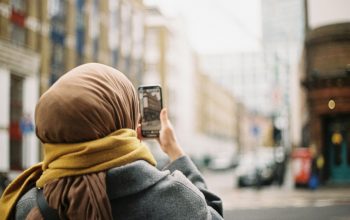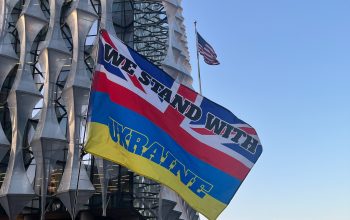https://soundcloud.com/user-663322667/islam-and-france-why-are-the-two-at-loggerheads
The President of France says he has begun a fight with Islamists, but instead has introduced policies that target ordinary Muslims.
In a speech he made at the beginning of October, Emmanuel Macron asserted France’s stand on secularism and said that Islam should be practised in a way that is compatible with French values.
France has experienced many incidents in the last few years carried out by Islamist terrorists, most notably the Bataclan attack where 130 people died and the Charlie Hebdo shooting, both in 2015.
Following his speech, France saw a string of deadly attacks including the tragic beheading of school teacher Samuel Paty in Paris, and the killing of three people inside a church in Nice.
But mass unemployment, police brutality and one of the highest death counts in the world from Covid-19 are some of the things Macron should pay more attention to. He is diverting attention away from these national crises, to focus on an already marginalised community — French Muslims and immigrants.
Politics at play
Macron’s politics has slowly been shifting to the right of centre and with the invention of the phrase “Islamist separatism”, the president has found a way to gain back some popularity.
His biggest political rival Marine Le Pen of the far-right National Rally won more seats in the European Elections last May than Macron’s En Marche party. With the election only 18 months away, Macron wanted to be bold.
Pandering to the far-right, Macron spoke about new policies specially designed for the five million-strong Muslim population.
Some of Macron’s new laws include:
- Closing down Muslim schools that may have an extremist element
- Instead of having Imams from abroad, the French Council of the Muslim Religion will certify and train religious leaders
- No homeschooling for children over the age of three
- Injection of cash for mosques in order to have government control
While all these sound sensible, “Islamist Separatism” is a confusing concept, and one which is hard to understand. Macron mentioned segregated sports lessons as an issue. But the link between wanting separate female-only swimming sessions and Islamist activity is disingenuous. Equating very common cultural practices to something sinister implies that any Muslim customs different from traditional French customs are up for scrutiny.
Offending Muslims across the world
Macron went as far as saying, “Islam is in crisis”. This provoked criticism from some leaders across the world:
Imran Khan, Prime Minister of Pakistan tweeted:
Other people around the world responded with a boycott of French goods. After Macron realised this was going to hurt France where it mattered most -financially – the president tried to backtrack.
His government has been involved in diplomatic talks with leaders of Muslim countries across the world reassuring them that Macron only wants to tackle “radical Islam” and not Islam.
With Islamophobia growing in France, it is this kind of rhetoric that leads to further stigmatisation.
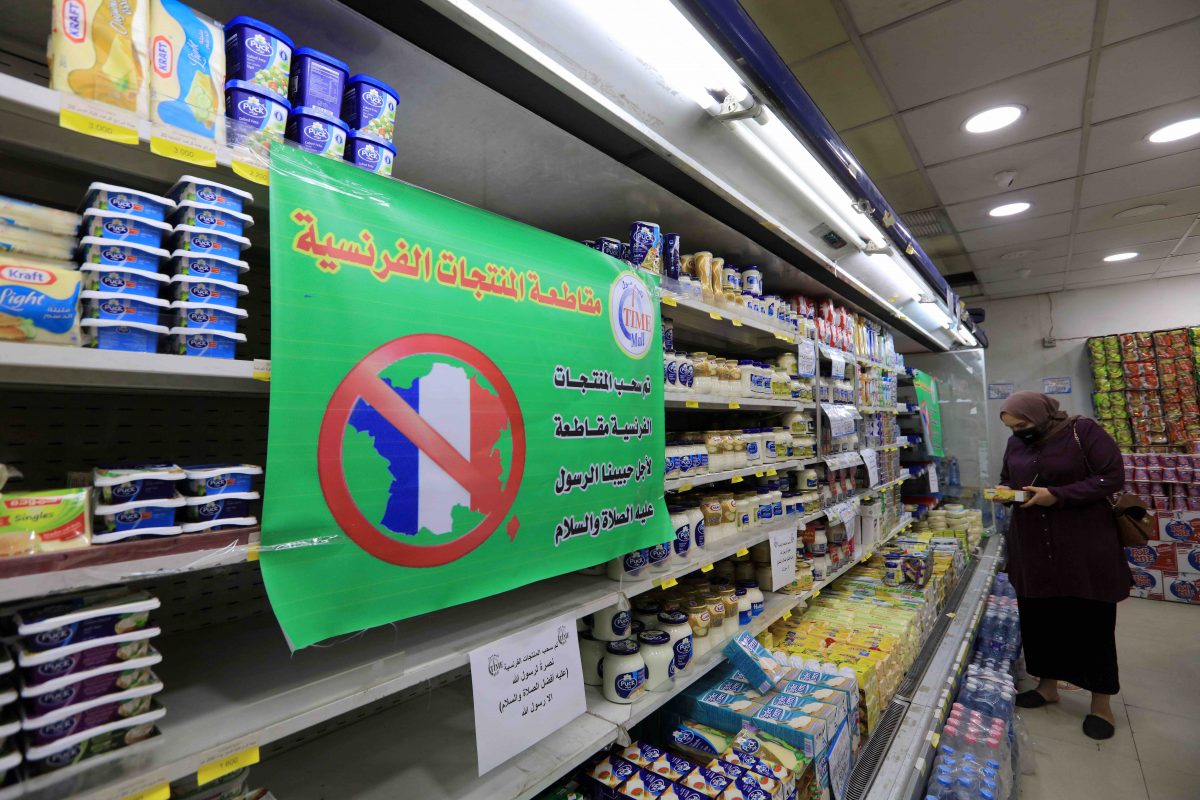
Laïcité lies at the heart of it
The anti-immigrant sentiment used to be on the fringes, but Le Pen’s party’s popularity has brought the anti-immigrant agenda to the centre of politics. Furthermore, anti-Muslim sentiment has been normalised under the guise of “Laïcité”.
Laïcité is the separation of the state from religion, making France a proud secular state. When it was incorporated into the French constitution back in 1905 it was to prevent interference from the Catholic Church.
The principle of Laïcité is deeply embedded in the French psyche. It was also used to give minorities the freedom to practice their religion, in private and public.
Over the last few years, the authorities have closed down many mosques. Raids and closures of Muslim-led activities have taken place which has seemed to cause further divisions between communities.
Research has shown you are six times more likely to be discriminated against if you have a Muslim sounding name in France. If you are black or perceived as Arab, you are 20 times more likely to be searched by police according to a report by Defenseur Des Droits (Defender of Rights), a French human rights organisation.
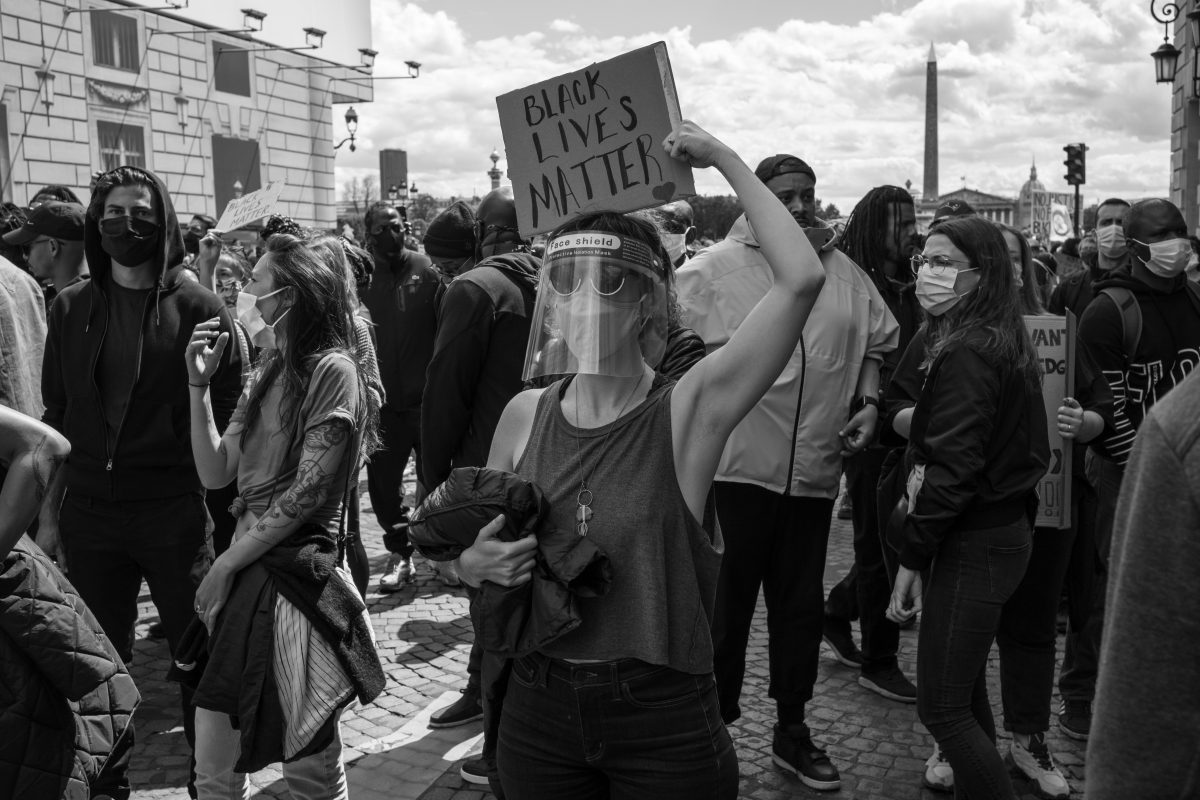
Increased surveillance over the last few years has made some Muslims in France feel demonised and treated like “the enemy within”, the phrase used by the Interior Minister of France, Gérald Darmanin.
There has been negative sentiment amongst French classes towards North African immigrants for decades. The majority of French Muslims are of Algerian, Moroccan or Tunisian descent and colonialism, which led to the death of 1.5 million Algerians, and its legacy is very much alive.
Discrimination has left a lot of French Muslims in suburban ghettos living in poverty and with no job prospects.
Macron admitted this: “We have created our own separatism in some of our areas. We have concentrated populations of the same origins, the same religion. This has created economic and educational difficulties.”
Stigmatising Muslims
The law banning the crucifix, hijab (headscarf), Jewish skullcap and other symbols from schools and the workplace for civil servants came into force in 2004. Whilst aimed at persons of all religions, the Muslim community felt targeted as the conversations started with the discussion of Muslim attire.
In 2010 the “burqa ban” was enforced meaning face veils and long cloaks (burqas) were not allowed in any public space. Despite it only affecting about 2,000 Muslim women, it felt very much like a targeted assault against Muslim customs.
As well as this the infamous and senseless “burkini” ban preventing Muslim women from covering up on beaches in the south of France further aggravated grievances, even though it was overturned later. The damage had been done.
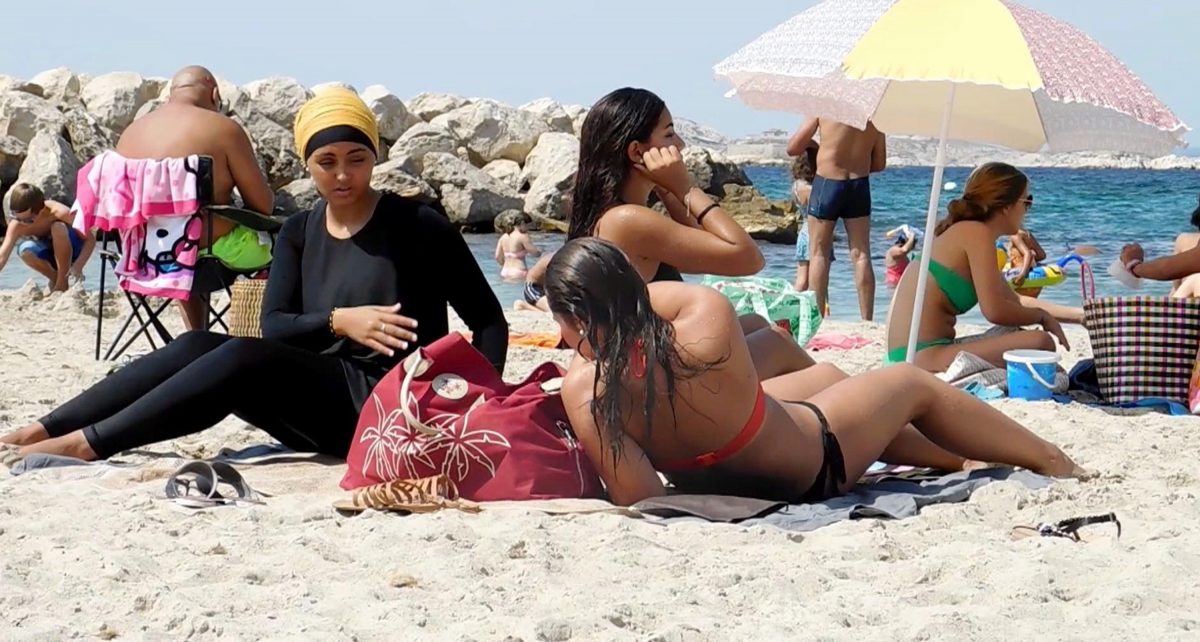
French Muslims have felt demonised by these laws and with unemployment high amongst the immigrant community, it is no wonder there has been tension for years.
Macron’s aggressive secularism is a message to Muslims to stay in their lane. Practise your faith but not at the expense of French values — but there is no reason why both cannot co-exist.
Laïcité also means not interfering with religious institutions, but Macron feels he should have a say in how mosques are run.
Whilst insulting Islam may be acceptable under freedom of speech, defending one’s faith falls under freedom of expression and Muslims are within their right to feel hurt and upset by publications like Charlie Hebdo.
Let us be clear, when the prophet Muhammad was himself attacked by many different people, verbally and physically, he never reacted negatively let alone violently. That should tell everyone all they need to know about whether any of these violent actions are justified by the religion of Islam. The word ‘blasphemy’ does not even appear in the Quran.
What is the solution?
Yes, France is in dire straits. On one hand, it is battling with itself to uphold its modern version of laïcité and on the other hand having difficulty trying to distinguish violent extremists from law-abiding citizens.
Tweeting statements like “secularism has never killed anyone”, may sound like a tweet from Donald Trump but from Macron, it seems unnecessarily hurtful.
If you are treated as an outsider or a potential criminal all your life despite being born in France, it is very easy to be manipulated and brainwashed.
Like everyone else, Muslims in France are sick of Islamist attacks and also tired of communal blame — where one Muslim does something, and the whole community is held to account for it.
Macron needs to win support from French Muslims and the immigrant community by not treating them as potential terrorists. He needs to engage with them and keep them in the conversation, not antagonise or provoke them. Disfranchised citizens will not vote if they feel no one will represent them.

